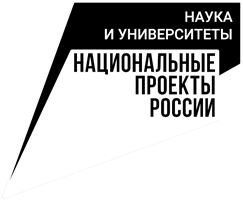Seminar Leader: Sadovnichy V.A., academician, rector of Lomonosov Moscow State University
Co-leaders of the seminar:
- Wilfand R.M., Doctor of Technical Sciences, Scientific Director of the Hydrometeorological Center of Russia
- Dobrolyubov S.A., Corr. RAS, Dean of the Faculty of Geography, Lomonosov Moscow State University
- Lykosov V.N., Corr. RAS, chief scientist Institute of Computational Mathematics, Russian Academy of Sciences, Head. Laboratory of Supercomputer Modeling of Natural and Climatic Processes of RCC MSU
- Stepanenko V.M., Doctor of Physics and Mathematics, Deputy Director of RCC MSU
Scientific Secretary of the seminar: Mortikov E.V., Ph.D., Researcher of RCC MSU
PROGRAM
| D.B. Kiktev | Hydrometeorological Center of Russia |
WEATHER IN CONDITIONS OF A CHANGING CLIMATE AND ITS FORECAST
Numerous studies indicate the relationship of climate change with the frequency, intensity and duration of extreme hydrometeorological phenomena. Many extreme events are also dangerous hydrometeorological phenomena and pose a serious threat to the population and the economy. It is logical that the development of early warning systems for such phenomena is a priority in modern prognostic hydrometeorology.
Compared to short-term forecasts, the problem of long-term forecasting of extreme / hazardous events has so far attracted the attention of the meteorological community to a much lesser extent. Wherein, many managerial decisions in the areas of water management, energy, agriculture and other sectors of the economy require prognostic hydrometeorological information for months and seasons. The degree of detail of long-term forecasts, usually presented in terms of the probabilities of three categories of averages for the period of forecast anomalies (above / below / near the norm), does not suit many consumers. But even in this form, the success of long-term forecasts issued by leading forecasting centers is very modest today. Can we talk about early warnings about extreme events for long periods at the current sobering level of success of seasonal forecasts?
The message touches on probabilistic interpretation of ensemble numerical meteorological forecasts, provides information on various indicators (indices) of extremeness, and discusses the possibility of long-term forecasting of extreme events.

